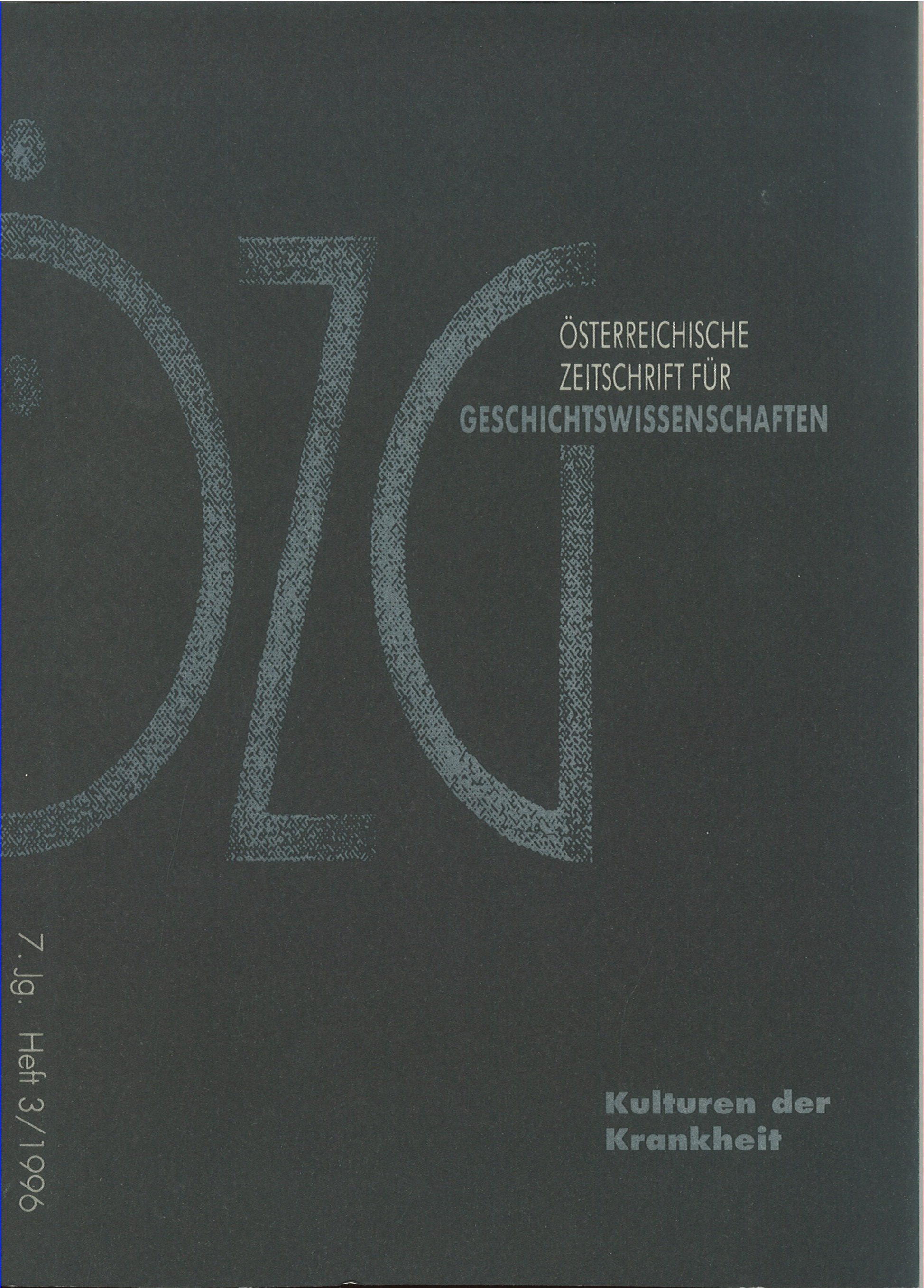Die Politik der Gesundheit im 18. Jahrhundert
DOI:
https://doi.org/10.25365/oezg-1996-7-3-2Abstract
In this short essay, which was first published as an introduction to a historical documentation of the genealogies of the modern hospital, Foucault starts out by arguing that ,private’and ,socialised’medicine both derive from the same universal strategy. Health and sickness were problematised in the eighteenth century through the initiatives taken by a number of social institutions and groups, which lead to the emergence of a form of noso-politics. Conceived in terms of the health of all being a priority for all, noso-politics turns the state of health of a given population into a general objective of policy. The sudden importance assumed by medicine in the eighteenth century stems from the point of intersection of a new, ,analytic' economy of assistance with the emergence of a more general form of ,Medicinal-Policey’(medical policy).
Two main characteristics of noso-politics are identified: The special attention accorded to the child and the medicalisation of the family. The health of children becomes one of the family's most overriding concerns. From the second half of the eighteenth century onwards, the family becomes the target for great efforts towards a process of medical acculturation as well as becoming the agent of medicalisation. During the eighteenth century the idea of a pathogenic urban space inspired a new set of research in this field. In a more precise and localised fashion, the needs of hygiene required authoritarian medical intervention in what were regarded as the favoured breeding-grounds for disease.


